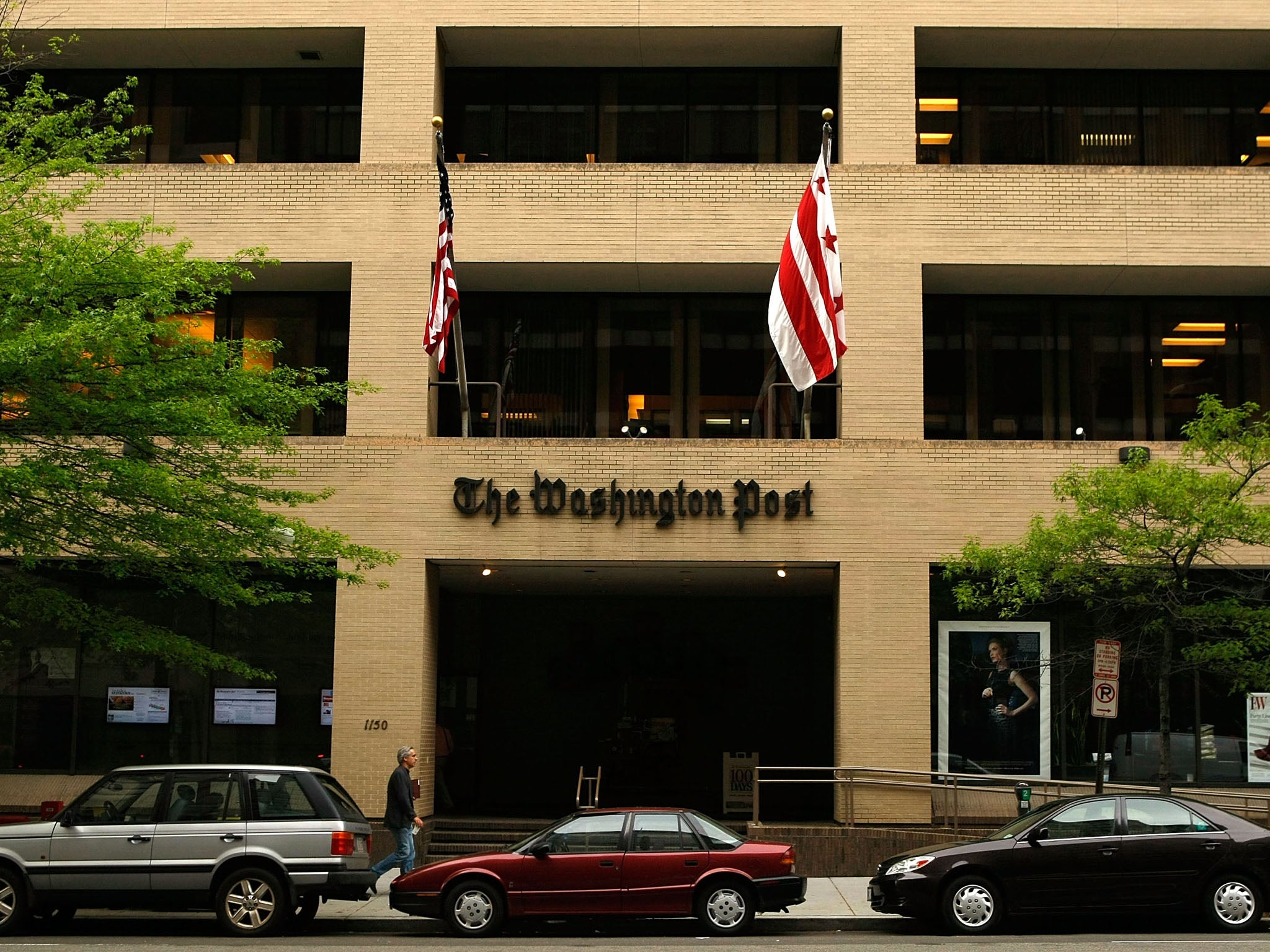Washington Post website reportedly considering paywall

Your support helps us to tell the story
From reproductive rights to climate change to Big Tech, The Independent is on the ground when the story is developing. Whether it's investigating the financials of Elon Musk's pro-Trump PAC or producing our latest documentary, 'The A Word', which shines a light on the American women fighting for reproductive rights, we know how important it is to parse out the facts from the messaging.
At such a critical moment in US history, we need reporters on the ground. Your donation allows us to keep sending journalists to speak to both sides of the story.
The Independent is trusted by Americans across the entire political spectrum. And unlike many other quality news outlets, we choose not to lock Americans out of our reporting and analysis with paywalls. We believe quality journalism should be available to everyone, paid for by those who can afford it.
Your support makes all the difference.The Washington Post will probably start charging online readers for access to newspaper articles in the middle of next year, a person familiar with the plans said.
Long reluctant to charge for online content, the newspaper is close to a decision to introduce digital subscriptions and charge online readers once they surpass a certain number of articles or multimedia features a month, the person said. Access to the home page and section fronts would not be limited.
The model — known as a metered paywall — would be similar to that used by the New York Times, which started charging for online content in March 2011 and now has nearly 600,000 digital subscribers. The Wall Street Journal and Financial Times have similar models.
Home subscribers to the print edition would have unfettered access to The Post's website and other digital products.
The news was reported Thursday on the Wall Street Journal's website, which also said that The Post would raise the price of the paper sold at newsstands. That price has increased from 25 cents to $1 over the past several years.
Post Co. executives have long believed that the newspaper needed to build a larger core audience of people who are frequent users of the website and therefore the most likely to subscribe. And they hoped that a large online audience would bring in more online advertising.
But online advertising stalled late last year and early this year. Moreover, the success of the New York Times, which added online subscribers without significant losses of casual Web readers or print subscribers, provided some encouragement.
In addition, Warren Buffett, a former longtime Post director and a confidant of Post chief executive Donald Graham, has bought most of Media General's local newspapers through his conglomerate, Berkshire Hathaway, and said that he would introduce paywalls throughout the chain.
"Anyone who focuses on the newspaper business should be focusing on one company: Berkshire Hathaway," Graham said earlier this week at a media conference hosted by UBS. "Warren has bought more than 80 papers . . . and he's been waving his arms saying, 'I'm not done.'"
He added: "Warren's strategy is: put in a strict paywall and focus on local, local, local stuff." Graham said that The Post would keep its local focus, including political coverage, as it covers Washington "as a city and as the capital of the United States."
Graham has long been considered skeptical about the wisdom of introducing a paywall, according to company managers and executives.
When asked Monday at the conference about the possibility of introducing a paywall, Graham said: "We're going to continue to study every aspect" of such a move. He praised the New York Times for "what seems to be a very intelligent paywall." But he added that The Post's strength was its local audience and ads, and said he was concerned about losing national audience and advertising by charging online readers.
Asked by one investor analyst whether he thought the paper could improve profits by increasing revenue or cutting costs, Graham said, "We will absolutely be having to bring costs down." But he added that many advertisers remain willing to pay for the paper's unusually high penetration among households of the Washington area.
Join our commenting forum
Join thought-provoking conversations, follow other Independent readers and see their replies
Comments